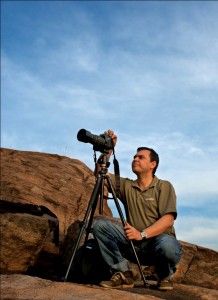 Nature has many admirers but seldom there are those who not just admire nature but make it their point to save its beauty in whichever way they can. Neloy Bandyopadhyay in one such person. A techie by profession and a self confessed naturalist by heart, 34 year old Neloy has been travelling the length and breadth of the country to capture rare glimpses of nature in his camera and take a step further to save the rapidly dying wilderness of the country.
Nature has many admirers but seldom there are those who not just admire nature but make it their point to save its beauty in whichever way they can. Neloy Bandyopadhyay in one such person. A techie by profession and a self confessed naturalist by heart, 34 year old Neloy has been travelling the length and breadth of the country to capture rare glimpses of nature in his camera and take a step further to save the rapidly dying wilderness of the country.
His latest offering is a short film on the Gyps Vulture or Asian Vulture that is struggling to survive in India. The 14 minute documentary showcases how conservationists are fighting a war everyday to save these scavengers that play one of the most important roles in the food chain and are now slowly dying out in India.
What makes the film called ‘The Last Hope’ an incredible effort is because it has been entirely created by Neloy through funding from his own pocket just because he as a nature-lover felt the need to spread the word about the vulnerable vultures.
The genus Gyps Vulture consists of eight species of vultures, out of which five species are available in the Indian subcontinent. Of these the White-backed vultures, Slender-billed vultures and the Long-billed vultures have already been placed in the IUCN’s Red List of Critically Endangered Species.
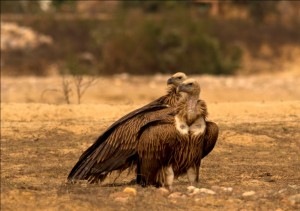
What many do not realize is that apart from habitat destruction, scarce breeding and feeding grounds, what is acting as the death knell for vultures is a drug called Diclofenac that many farmers in India still use to treat their sick cattle. When vultures feed on the carcass of these dead cattle, they die a slow and painful death suffering from kidney failure and visceral gout. Although India banned the use of this drug, it is still used by many around the country.
Neloy’s film looks at the situation from the point of view of the conservationists who are struggling to spread the word about the deadly effects of the drug among farmers. Without general awareness, the loss of vultures is inevitable and it is for this particular reason that Neloy has spent months across India to gather data for the film and shoot it.
India’s Endangered spoke to this young enthusiastic naturalist about his work and the film.
Tell us in brief about yourself:
I work with Wipro as an Information Security Consulting Manager in Bangalore and photography or cinematography is my hobby. I am a nature lover and wildlife enthusiast. I strongly believe as a human being we should carry the extra responsibility to save the nature and the wildlife which is destroying very fast due to our irresponsibility. I try to convey the awareness towards the conservation through my film / photography.
Tell us about your documentary film on Vultures?
“The Last Hope” is a film about the relentless struggle of the vulture conservationists in India and this subcontinent where the activists are fighting a tough battle to protect the Asian Vultures from the brink of extinction. The film tells about the hope. It says if we act with responsibility, if we can go a few extra miles we can save a gift of nature. This scavenger birds has served mankind for ages, now we should also take the responsibility to protect them from the extinction.
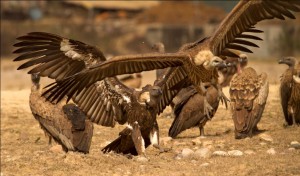
How did the idea of making the film come about?
A year back I was taking some still images of the Long Billed Vultures when the idea of making this film hit my mind. I thought a film would be more viable towards the awareness than one or two still images.
What were the challenges you faced while making the film?
To film a bird which has experienced more than 90% decline was itself a challenge. The other challenge was the equipments. I made this entire film with a Canon 7d and a canon 400 mm lens. I couldn’t buy / hire high range lens or dedicated movie cameras for budget issue. I believe if I could get any kind of sponsor I can cover the other Asian countries like Nepal , Pakistan and Bangladesh to make a more effective film.
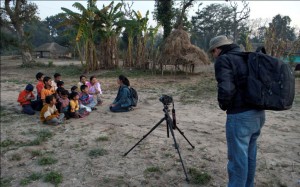
What about funding and resources?
This film is self funded. I spent all my savings but tried to make a film which can help to spread the awareness to save this breed. I have the limitation of the infrastructure starting from the video equipments to post production and sound recordings. But I had some supportive friends Probal Sen, Keya Mukherjee, Bibhuti Biswas and my wife Rima Bandyopadhyay who really helped me in scripting, voice over, Camera and all other post productions.
I must say I have received immense advisory help from BNHS, RSPB and the Peregrine fund. Dr. Vibhu Prakash from BNHS, Dr. Munir Virani from the Peregrine fund, Chris Bowden from RSPB and Dr. Patrick C Benson from the University of the Witsatersrand (SA) were very helpful throughout the journey of making The Last Hope.
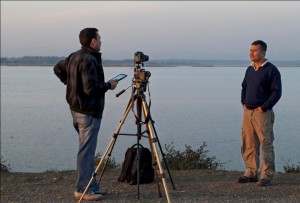
How was the response to the first public viewing of the film?
I received a very positive response from everybody on the first public screening. I was very happy to see that everybody was very involved with the film.
(As reported in DNA :Last Friday, Alliance Française de Bangalore, saw a full house at a short film screening. …This was a documentary on the Gyps Vulture or Asian Vulture, which is slowly dying out. Called The Last Hope…)
Any future shows in line?
My company Wipro and other few corporate have told me to have the screening of this film in their own campus. A screening is expected in Uttarakhand and Corbett Tiger Park.
Can the film be viewed online?
I will make a part of the film available online as a trailer.
Do you think enough is being done in India to save the Vultures?
No not yet. We have to do a lot if we are serious to save this species. The hope is that, many people are now seriously thinking about it and I am hopeful we can do something better.
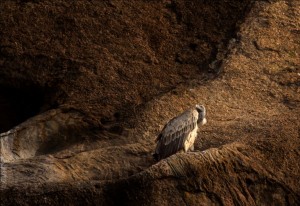
What are the future projects you plan to work on?
I have a plan of making couple of films again on endangered species for the awareness. But truly speaking without funding it’s very difficult to make a full phase wildlife documentary film. If I will not get any fund I will try again to make short films within my budget instead of making a full length film.
“I just would like to say that we can achieve this goal (saving all the species which are under threat) if we take a little more responsibility. We have to understand that we are part of a life cycle. If we don’t protect others it will affect ourselves. All the other species also have the same right to be on earth just like us.”
Readers and those willing to help Neloy with his future projects can contact him through,
Email – bneloy@gmail.com
Website – www.neloy.in
Phone – 9886521315
As a face of modern India, Neloy sets a burning example that profession and passion can work in tandem to create a better world.
-Atula Gupta
All images courtesy Neloy Bandyopadhyay
Related Stories:

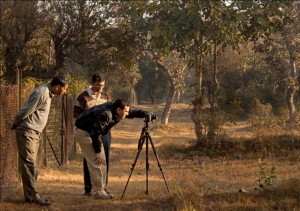
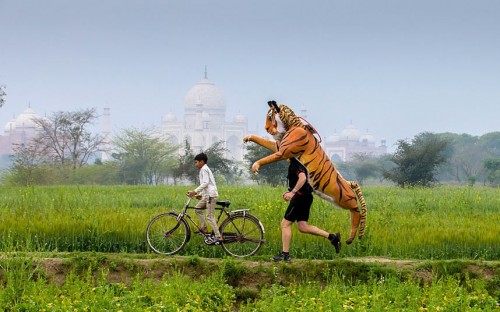

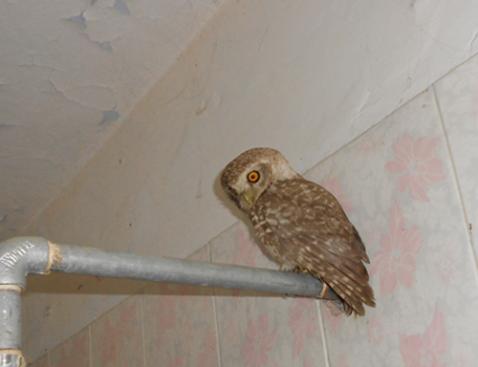
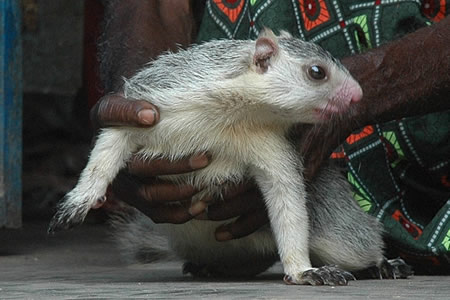
Thanks for info. I like it. I want to share some info with you. Near Surat one vulture restaurants is operated by surat nature club. We made one docu. film on their activity. and the link is http://www.youtube.com/watch?v=lVj_BPY7C00
Thank you Umesh for sharing this important information with us and the video. I am glad that Surat Nature Club has taken this initiative. It is only through efforts like this that we can gain back the lost population of vultures.